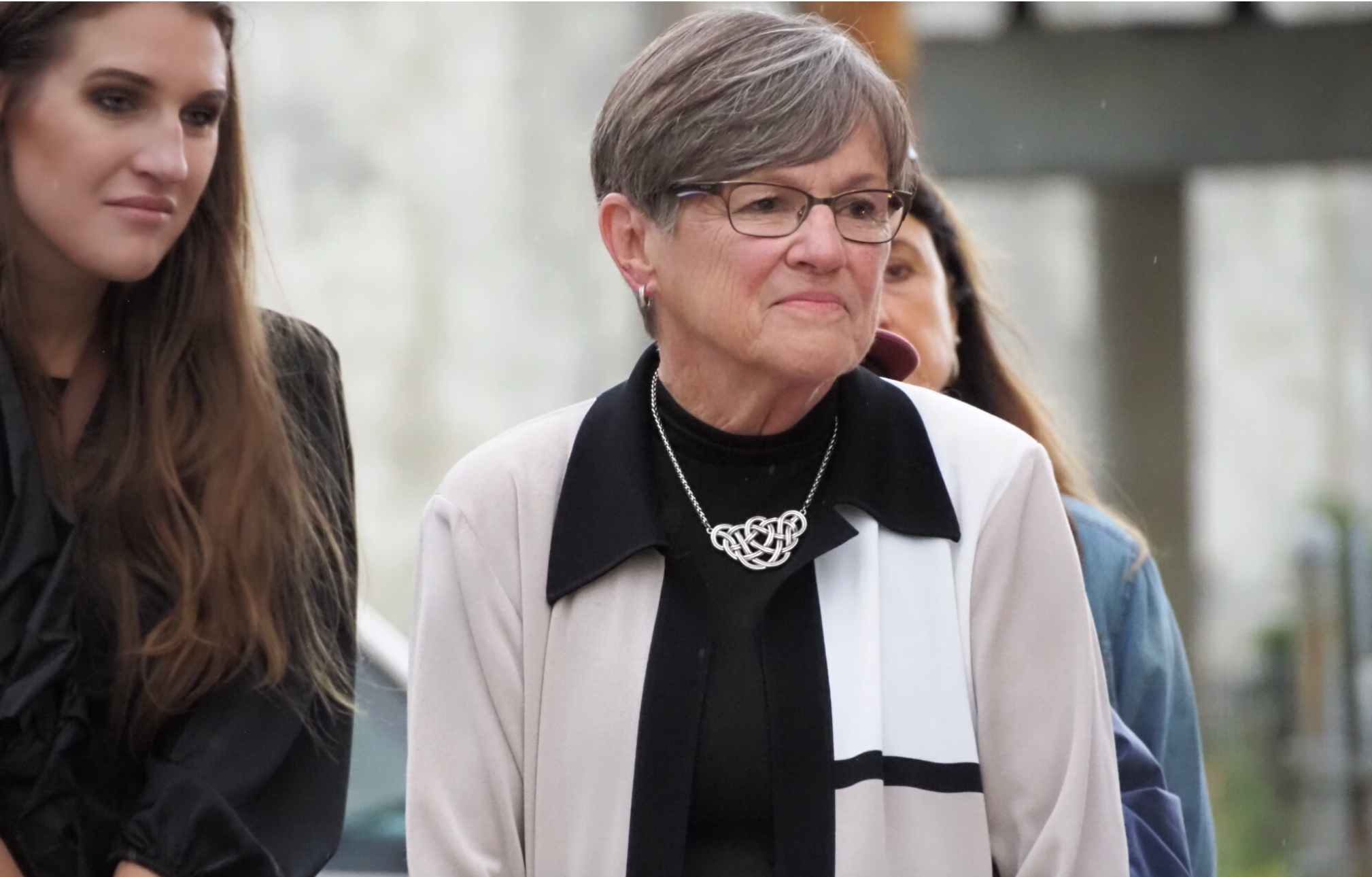
BY MORGAN CHILSON
Kansas Reflector
TOPEKA — The federal government’s plan to withhold $10 million from a Kansas food assistance program won’t affect recipients and will be delayed while the state files an appeal, the Kansas governor’s chief of staff said Monday.
The governor’s office provided clarity on the issue after Attorney General Kris Kobach declared the state had lost millions in funding for the Supplemental Nutrition Assistance Program because “Gov. Laura Kelly refused to provide basic information about SNAP recipients to the USDA.”
Kelly’s administration has refused federal demands for SNAP data because it isn’t clear how Kansans’ personal information will be used.
“The governor seems to be blinded by her political ideology. She is flagrantly violating Kansas law, and she is hurting needy Kansans in the process,” Kobach said in a news release.
Kobach sued Kelly and Department for Children and Families secretary Laura Howard on Sept. 8 for failing to turn over personal data of SNAP applicants and recipients, as they were repeatedly asked to do by the U.S. Department of Agriculture.
Patrick Penn, a former Kansas legislator who now is U.S. undersecretary for the Food, Nutrition and Consumer Services program at USDA, in an Aug. 20 letter to Kelly threatened to withhold $10.4 million every three months until his agency receives the data.
Penn said the data is needed to look for fraud within the program, which Howard has previously said is a function already completed through a fraud detection program in place as part of the state’s contract with FNS.
Penn said that is not the case.
“In the absence of data, FNS lacks key information necessary to ensure effective stewardship of taxpayer dollars,” Penn’s letter said. “FNS has already discovered from states that are complying with this statutory data sharing requirement that fraud or duplication in state distribution of federal funds has gone unreported and needs remediation.”
Kelly’s chief of staff, Will Lawrence, said the state will file an appeal of the decision to withhold funding.
“The attorney general continues to have a complicated relationship with the facts and the truth in an effort to score political points by misleading thousands of Kansans,” Lawrence said of Kobach’s press release.
“We will, of course, appeal the decision and continue to protect the security of Kansans’ private data,” Lawrence said. “The filing of an appeal will automatically stay the disallowance of funds, meaning the SNAP program will continue to operate normally as the appeals process unfolds.”
Howard has said previously that DCF and the state are awaiting the ruling of a lawsuit brought by California and joined by other states asking the courts to stay the USDA’s request for SNAP data. A temporary injunction to stop the release of data to the USDA is in effect, according to a filing in that case.
Kobach’s office has not responded to Kansas Reflector questions about whether he believes that injunction applies to Kansas.
“We warned that this would happen when we filed the lawsuit on behalf of all Kansans against the governor. She is required by Kansas law to provide this basic information to the USDA,” Kobach said in the press release. “Now low-income Kansas families won’t be able to put food on the table because of her political defiance.”
If the funding were lost, it would affect the Kansas budget because it pays for administrative costs associated with SNAP. The funds are not part of the aid that is paid to SNAP recipients.
U.S. Reps. Ron Estes and Tracey Mann sent a letter, which Kobach included in his press release, to Kelly on Sept. 3 demanding the data be released so the state can correct its SNAP error rate.
Earlier this month, Howard explained the SNAP error rate is determined by the fraud detection process already in place.






